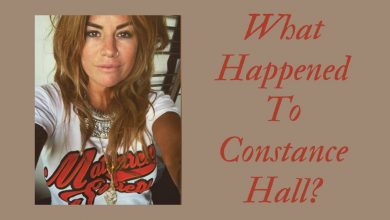Kim Fu’s short stories ‘Lesser Known Monsters of the 21st Century’ are a balm for troubled minds
“Lesser Known Monsters of the 21st Century” might surprise readers of Kim Fu’s debut novel, 2014’s “For Today I Am A Boy.” A poignant coming-of age story with a sharp focus on family dynamics and gender identity, that prize-winning novel fit comfortably within the Canadian literary canon. At a glance it evoked books by Margaret Laurence, Alice Munro and Madeleine Thien.
The dozen stories that make up Fu’s latest book, “Monsters,” showcase an affinity for different genres, namely horror, science fiction and fantasy. With a capable hand and wry voice, Fu, who was born in Calgary, has lived in Vancouver and Montreal, and currently lives in Seattle, chronicles bizarre events and dystopian realities. As they summon disturbing signs and wonders, the stories invite readers into out-of-left-field portraits — of marriage, childhood, grief, and our glum zeitgeist — that delight, provoke and entertain.
Consider the eclectic opening trio. Exclusively dialogue, “Pre-Simulation Consultation XF007867” presents a negotiation between an operator of a holographic simulator and a client who wants to converse with a deceased parent. “Liddy, First to Fly” describes a teenage girl who develops “bulbous horrors” near her ankles, which her friends initially decide are ringworm marks. The peers bond over the “new hidden world” of Liddy’s bodily changes and eagerly await the completion of her strange evolution. “Time Cubes” starts at a mall kiosk that sells time-compressing gadgets, ostensibly gimmicks. They attract Alice, a “Depressive” in a world where past, present, and future are, well, depressing.
Fu utilizes technology again in “Twenty Hours,” a mordant examination of marriage. The story launches with, “After I killed my wife, I had twenty hours before her new body finished printing downstairs.” Fu speculates on the freedom and torment of being able to terminate an irksome partner, knowing a perfect copy would resume living a day later. “I never meant to use it,” the narrator says. “And then I never meant to use it again.”
Often tormented, Fu characters are gifted with otherworldly solutions. In “June Bugs” an online shopping clerk sublets a remote house to escape a controlling, violent boyfriend. She discovers an insect infestation has valuable uses. Another tale with corroded romance in mind, “Bridezilla” outlines Leah’s cynicism (such as, “Weddings were obscene in any era, but especially in this one, a narcissistic spectacle at the end of the world”) a short time before her own wedding day. Her fate, which is tied to “an amalgamation of brainless multicellular organisms” off the coast of Hawaii, elicits a guffaw as well as a sense of wonderment. (As does the narrator of “In This Fantasy,” who divvies up her routine for an “incontinent eight-pound dog [that] needs to be carried outside six times a day” and to conjure elaborate historical fantasies she recounts in all their absurd detail.)
Thoughtful, inventive, and clever, Fu’s “Monsters” can also provide a balm for anxious pandemic states of mind. Things could be worse, the impressive collection reminds us.
JOIN THE CONVERSATION
/https://www.thestar.com/content/dam/thestar/entertainment/books/reviews/2024/02/17/kim-fus-short-stories-lesser-known-monsters-of-the-21st-century-are-a-balm-for-troubled-minds/kim_fu_author_photo_by_l.jpg)




